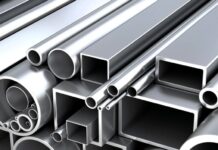In the realm of wastewater storage solutions, steel tanks have emerged as the pinnacle of durability and longevity. These versatile structures cater to a wide range of applications, providing a cost-effective and high-return investment for industries.
With their straightforward installation and ease of maintenance, steel tanks offer a practical solution for managing wastewater. Moreover, their eco-friendly nature aligns with the growing emphasis on environmental sustainability.
In this article, we delve into the unparalleled advantages of steel tanks as the ultimate choice for wastewater storage.
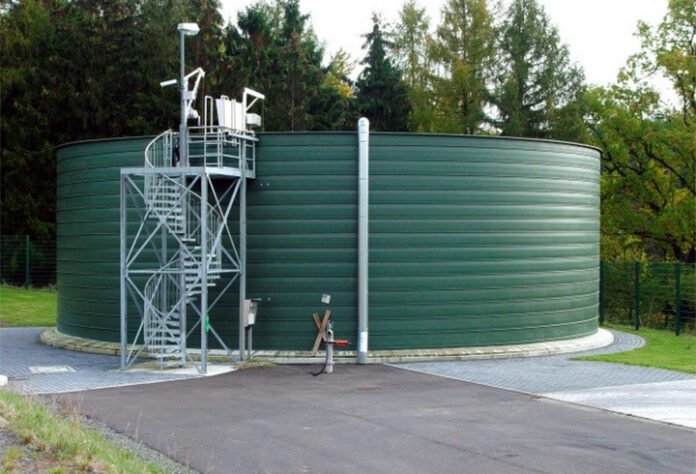
Durability and Longevity
Steel tanks offer unmatched durability and longevity in wastewater storage solutions. These tanks are designed to withstand various environmental conditions and provide a reliable storage solution for wastewater treatment facilities.
One of the key advantages is their resistance against corrosion. Corrosion is a common problem in wastewater storage tanks due to the presence of corrosive elements in the water. However, they are made with corrosion-resistant materials and coatings, ensuring long-term durability and preventing leaks or structural failures.
Additionally, steel tanks have excellent impact resistance, making them suitable for withstanding external forces and potential accidents. This ensures that the tanks remain intact and functional, even in high-traffic areas or during extreme weather events.
Versatility for Various Applications
With their exceptional durability and longevity, steel tanks offer a versatile storage solution for a wide range of wastewater treatment applications. The versatility of steel tanks lies in their customization options and space optimization capabilities.
These tanks can be designed and fabricated to meet specific requirements, allowing for customization in terms of size, shape, and capacity. This flexibility enables the tanks to fit into various applications, whether it’s for industrial wastewater treatment, municipal sewage treatment, or agricultural waste management.
Additionally, they can be installed above ground or underground, depending on the available space and specific needs of the site. This adaptability makes them an ideal choice for wastewater storage, ensuring efficient and effective treatment processes while maximizing the use of available space.
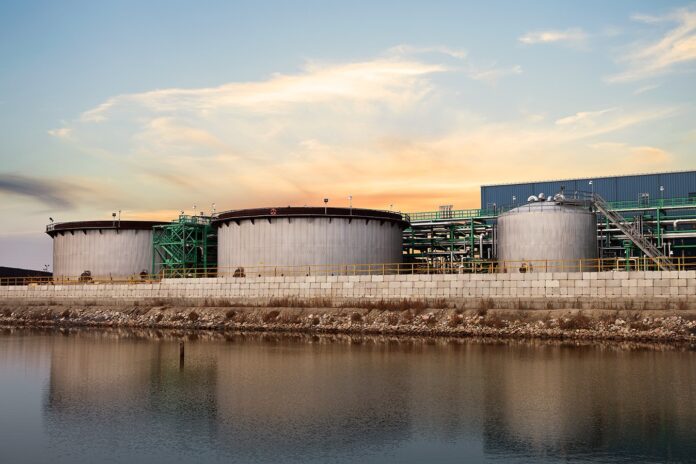
Cost-effectiveness and Return on Investment
One key aspect to consider when evaluating steel tanks as wastewater storage solutions is their cost-effectiveness and potential for a high return on investment.
A thorough cost analysis is crucial to determine the financial feasibility of implementing steel tanks for wastewater storage.
The initial cost of purchasing and installing them is higher compared to other storage options such as concrete or plastic tanks.
However, steel tanks offer significant advantages in terms of durability and longevity, resulting in lower maintenance and replacement costs over time.
Additionally, they have a higher resale value, contributing to a potentially higher return on investment.
When considering the long-term benefits and lower life-cycle costs, steel tanks prove to be a cost-effective solution for wastewater storage, making them an attractive option for various industries.
Easy Installation and Maintenance
Implementing steel tanks for wastewater storage offers the advantage of straightforward installation and low maintenance requirements. The installation process is relatively simple and efficient. These tanks are generally pre-fabricated and delivered to the site, reducing the need for complex on-site construction.
Additionally, they are versatile and can be easily customized to fit the specific requirements of the wastewater storage system. This ensures that the installation process is tailored to the unique needs of each project, resulting in a more efficient and effective solution.
Furthermore, steel tanks have low maintenance requirements. They are durable and resistant to corrosion, reducing the need for regular maintenance and repairs. This not only minimizes downtime and operational disruptions but also helps to prolong the lifespan of the tanks, providing long-term cost savings.
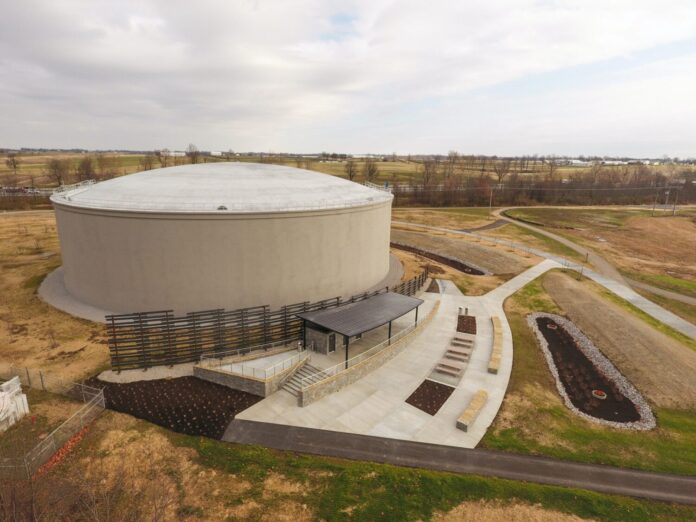
Environmental Benefits
Steel tanks for wastewater storage offer significant environmental benefits. These tanks are built to withstand harsh conditions and are designed to meet the highest standards of sustainability.
By using these tanks, industries and municipalities can promote sustainable practices and contribute to water conservation efforts. Steel is a highly durable material that can withstand extreme weather conditions, reducing the risk of leaks and spills that can harm the environment.
Additionally, they can be recycled at the end of their lifespan, reducing the need for raw materials and minimizing waste.
The use of steel tanks for wastewater storage not only ensures the safe containment of wastewater but also contributes to a more sustainable and environmentally-friendly approach to water management.
Frequently Asked Questions
What Is the Average Lifespan of a Steel Wastewater Storage Tank?
The average lifespan of a steel wastewater storage tank depends on various factors such as maintenance requirements, usage, and environmental conditions. Proper maintenance can significantly extend the tank’s lifespan, ensuring long-term functionality and reliability.
Can They Be Used for Storing Other Types of Liquids Besides Wastewater?
Steel tanks have versatile applications beyond wastewater storage. The durability, strength, and corrosion resistance of steel make it suitable for storing various liquids. Steel tanks offer advantages such as long lifespan, easy maintenance, and customizable designs.
How Do They Compare in Cost to Other Types of Storage Solutions?
Cost comparison is an essential factor when selecting storage solutions. Steel tanks prove to be a cost-effective option due to their durability and long lifespan. Conducting a thorough durability assessment ensures optimal investment in storage solutions.
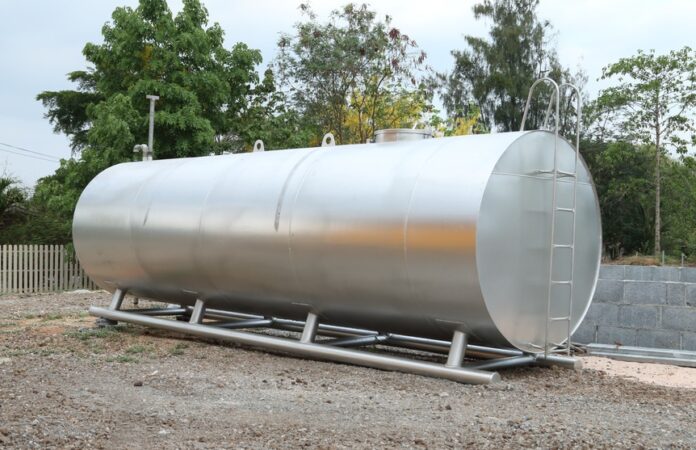
Are There Any Special Considerations or Requirements for Installing a Steel Tank?
Installation challenges and maintenance considerations are important factors to consider when installing a steel tank. Special considerations may include site preparation, foundation requirements, and ensuring proper ventilation. Regular inspections and maintenance are necessary to ensure the longevity and efficiency of the steel tank.
What Are the Environmental Benefits?
Steel tanks offer numerous environmental benefits for wastewater storage. Their durability ensures long-term use, reducing the need for frequent replacements. They are also resistant to corrosion, preventing leaks and minimizing environmental contamination. Additionally, steel tank maintenance is relatively simple, further contributing to their eco-friendly qualities.


